
Passkey support comes to Chrome and Android
Google has announced today that it's bringing passkey support to both Chrome and Android. Passkeys offer a significantly safer replacement for passwords and other phishable authentication factors and mark another step towards a passwordless future.
If you're unfamiliar with passkeys, they're a joint initiative from Apple, Google, and Microsoft. Unlike a password the key is stored exclusively on your devices and never gets shared with anyone else.

Update Chrome immediately -- Google releases emergency patch for serious security issue
Whether you are running Windows, macOS or a Linux distro, if you're a Chrome user there is an extremely important update to install right now.
Google has released Chrome 105.0.5195.102 for all three platforms to address the vulnerability which is tracked as CVE-2022-3075. The security flaw, which relates to data validation in the Mojo runtime libraries, is known to have been exploited in the wild, so users are advised to actively seek out the update rather than waiting for Google to roll it out to everyone.
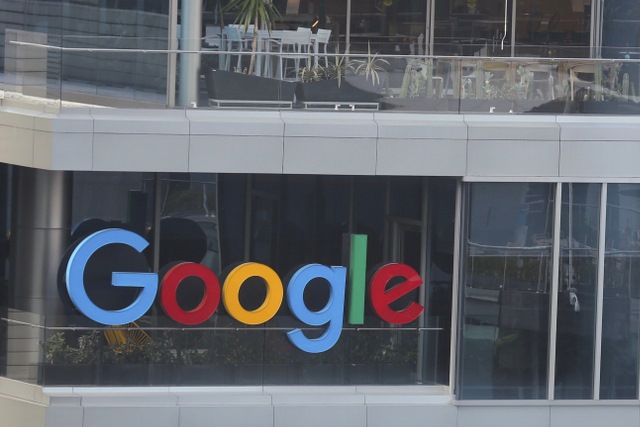
Google revamps its Password Manager for better protection and ease of use
Passwords. Despite numerous predictions of their demise we still can't live without them. Using strong passwords though, especially if you have several devices, means using a password manager to help you keep track.
Google Password Manager has been around in Chrome since 2008, but it's always offered a somewhat different experience on desktop and mobile devices. Until now that is.
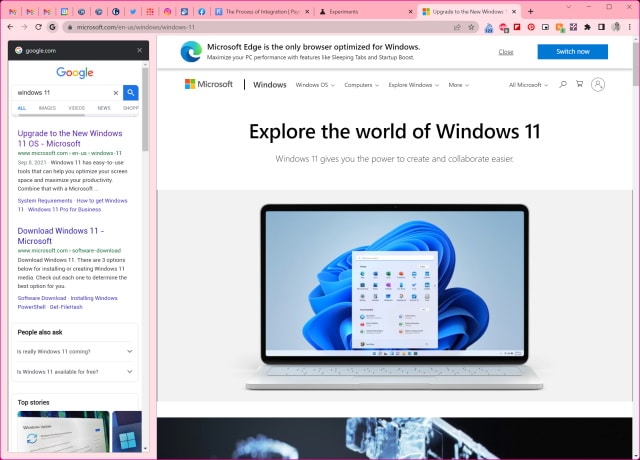
How to enable the secret side search feature in Chrome
It is easy to perform searches in Chrome, but you can make things easier. You probably currently either launch Google (or your preferred search engine) in a new tab, or just type a search term in the address bar, but there is another somewhat secret option.
Google’s browser has an optional search sidebar that not very many people know about. Called simply Side Search, this useful left-hand panel makes it easy to explore search results at speed.
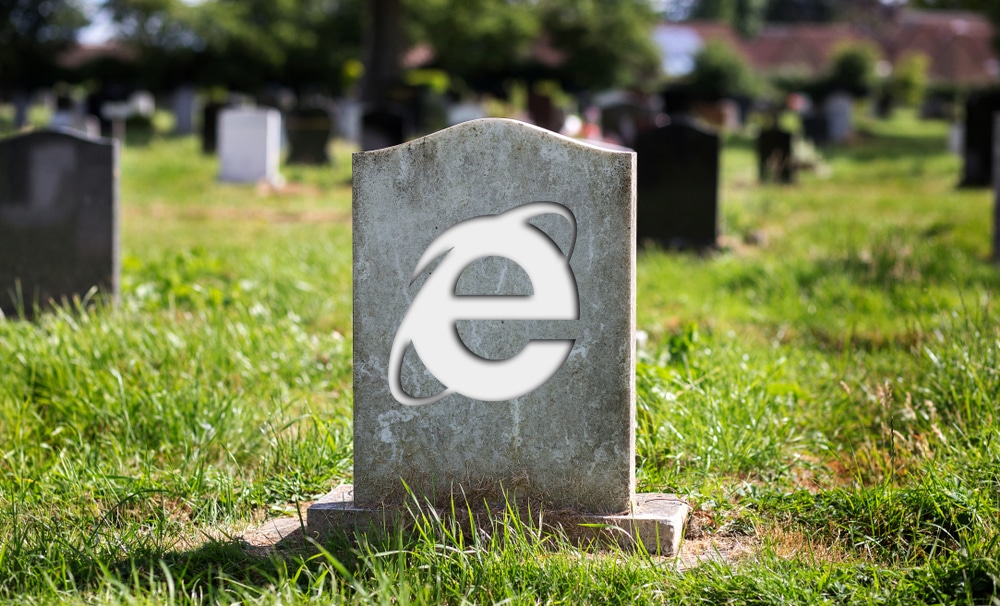
Microsoft retires Internet Explorer after 27 years -- here's what happens next
Internet Explorer was once the dominant web browser, boasting a 95 percent market share in 2004. The arrival of better and faster browsers like Firefox and Chrome, along with the rise of smartphones, slowly destroyed its ubiquity and from today it is now officially retired and out of support.
While few people will mourn its passing, the browser is still used by many businesses and individuals who simply haven’t bothered to switch from what they know. For those users, Microsoft’s solution will be a predictable one.

Say goodbye to Microsoft Windows 11 and wave hello to Ubuntu-based Linux Lite 6.0
Is Windows 11 a good desktop operating system. Absolutely. Is it the best desktop operating system? Well, that is harder to answer. Ultimately, if you are 100 percent dependent on Windows software, then yes, Windows 11 is the best operating system... for you. If you can get by without using software designed for Microsoft's OS, however, a Linux-based operating system might be the better option -- especially if you have an older computer.
You see, Windows 11 is very polarizing. The operating system features radical changes to the user interface (such as a centered task bar) which some users do like, but many others do not. Not to mention, the system requirements will leave many still-capable computers unable to upgrade without using unofficial hacks. Even worse, computers deemed incompatible could eventually stop getting updates! Linux doesn't have these problems.

Google is bringing secure virtual credit cards to Chrome
Making payments online is fraught with potential dangers, and there is risk involved with making purchases with your credit card. To help offer a level of protection, many companies -- including the likes of Revolut -- enable their customers to create virtual, disposable credit cards.
Inspired by this, Google is building the same functionality into Chrome. The company announced the upcoming payment security feature at Google I/O, saying that there will be support for autofilling details to help speed up transactions.

AMD turns its attention to Chromebooks with new Ryzen 5000 C-Series processors
While Chromebooks are often great, there is a big problem -- a lack of AMD processors. Most laptops running Chrome OS are powered by Intel or ARM-based chips. Wouldn't it be great if AMD released some new specialized processors designed for Chromebooks specifically?
Well, folks, AMD has done exactly that with the all-new Ryzen 5000 C-Series processors. There are four such chips coming to market -- the dual-core Ryzen 3 5125C, quad-core Ryzen 3 5425C, hexa-core Ryzen 5 5625C, and octa-core Ryzen 7 5825C. These processors are based on Zen 3 architecture and AMD says they will be paired with Wi-Fi 6E/Bluetooth 5.2 modules -- likely its own RZ600 series radio chips it co-designed with MediaTek.

Google, Apple and Microsoft announce plans for a passwordless future
As we mark World Password Day, three of the major technology players are announcing a significant step on the road to a passwordless future.
Over the next year Google plans to implement passwordless support in Android and Chrome. Apple and Microsoft have also announced that they will offer support in iOS, MacOS, Safari, Windows and Edge.
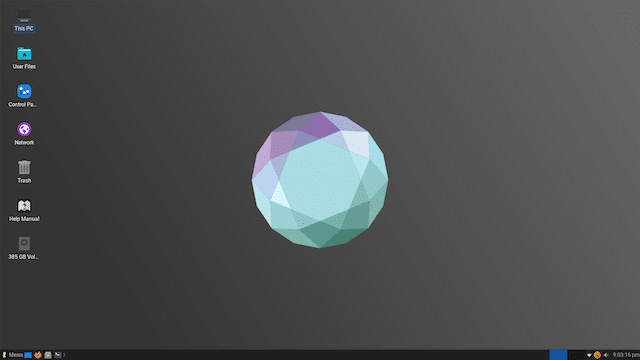
Linux Lite 6.0 RC1 is here with Google Chrome as new default web browser
Now that Ubuntu 22.04 has been released, we will start to see updates to all the Linux distributions that are based on Canonical's operating system. For instance, the first release candidate of Linux Lite 6.0, which is based on Ubuntu 22.04, is now available. If you aren't familiar, Linux Lite is very popular with those that are switching to Linux from Microsoft Windows.
Linux Lite 6.0 RC1 is notable for ditching Mozilla Firefox as the default web browser, and switching to Google Chrome 100 instead. The operating system currently uses Linux kernel 5.15.0-25 and the desktop environment Xfce 4.16.3. It comes with some excellent software pre-installed, such as GIMP 2.10.30, Thunderbird 91.7.0, VLC 3.0.16, and LibreOffice 7.2.6.2.
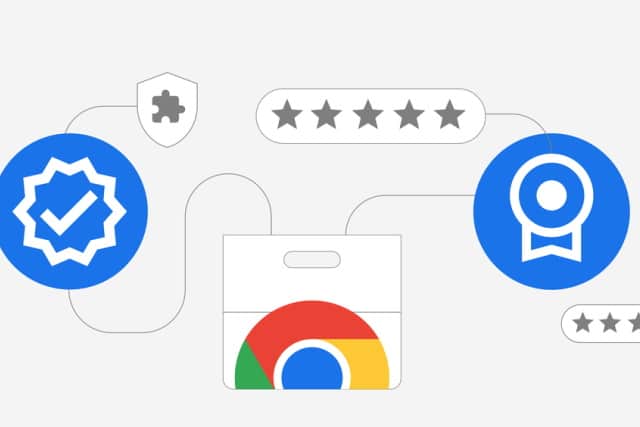
Google is making it easier to find the best browser extensions in the Chrome Web Store
Among the supposed benefits of downloading apps and other digital products from an official store is that they should be safe and reliable. But as users of the Microsoft Store, Google Play and the App Store will attest, making an appearance in such a repository is really no indication of quality or trustworthiness.
And the same is true of browser extensions. Once completely unpoliced, this is an arena that Google tried to take control off by introducing the Chrome Web Store. Now the company is introducing two new features which it believes should help Chrome users find extensions that are of a high standard.

Samsung Galaxy Chromebook 2 360 now available for purchase
If you need to buy a new Chrome OS laptop, I have some exciting news. Starting today, you can trade your money for the all-new Samsung Galaxy Chromebook 2 360. This convertible notebook can transform into a makeshift tablet, and with Android app support, that will be very much appreciated.
While the Galaxy Chromebook 2 360 is powered by a rather anemic Intel Celeron N4500 processor, you can opt for a respectable 8GB of RAM rather than the 4GB of memory that comes with the base model. Sadly, regardless of which storage capacity you choose -- 64GB or 128GB -- you only get a sluggish eMMC drive. Thankfully, you do get USB-A, USB-C, 3.5mm audio, and a micro SD card reader. You can configure with option LTE wireless connectivity too.
Google is going to help you improve your privacy in Chrome with Privacy Guide
Google is rolling out a new feature to Chrome users which it says will help to protect privacy while online.
Although the Privacy Guide does not add any new privacy options, it serves as a step-by-step guide that will enable users to implement the settings that are most appropriate. As well as providing guidance through what can be a confusing sea of settings, the new addition also offers up explanations about different options.

Microsoft and Google release emergency patches for security vulnerabilities in Edge and Chrome
Google has released an emergency patch for the Windows, macOS and Linux versions of Chrome after the discovery of a zero-day vulnerability that the company says is being actively exploited.
The security fix comes as Microsoft releases a patch of its own for the same vulnerability (CVE-2022-1096) in Edge, its Chromium-based browser. While neither company has given much detail about the problem, Google describes it as being of high severity.
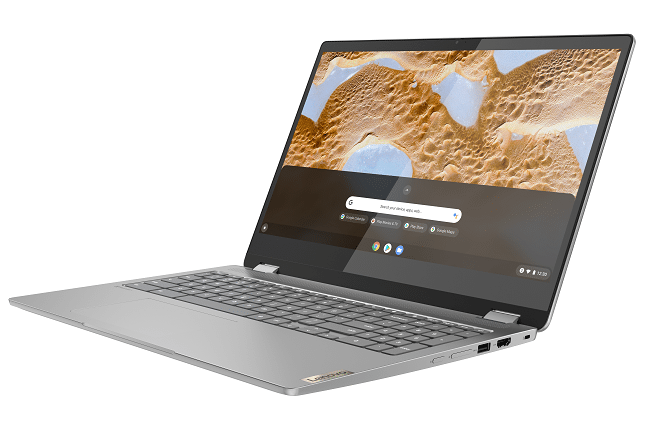
Lenovo unveils trio of IdeaPad Chromebooks -- Duet 3, Flex 3i, and Flex 5i
Windows 11 is cool, but let's be honest -- Microsoft's operating system is total overkill for the vast majority of users. When a family member asks my advice on buying a new PC, I almost always suggest a Chromebook. Why? Because they tell me everything they do is in the web browser anyway. And by getting them onto Chrome OS, there is a far reduced chance of them bothering me for PC help in the future. Chromebooks are simple and secure.
But what Chromebook should they buy? Ah, that is a tough one. There are so many great makes and models on the market these days. You really can't go wrong by sticking with reputable brands such as Acer, ASUS, or HP. One of my personal favorites, however, is Lenovo. That company is legendary for offering high-quality Windows computers, and its Chromebooks are no different.
